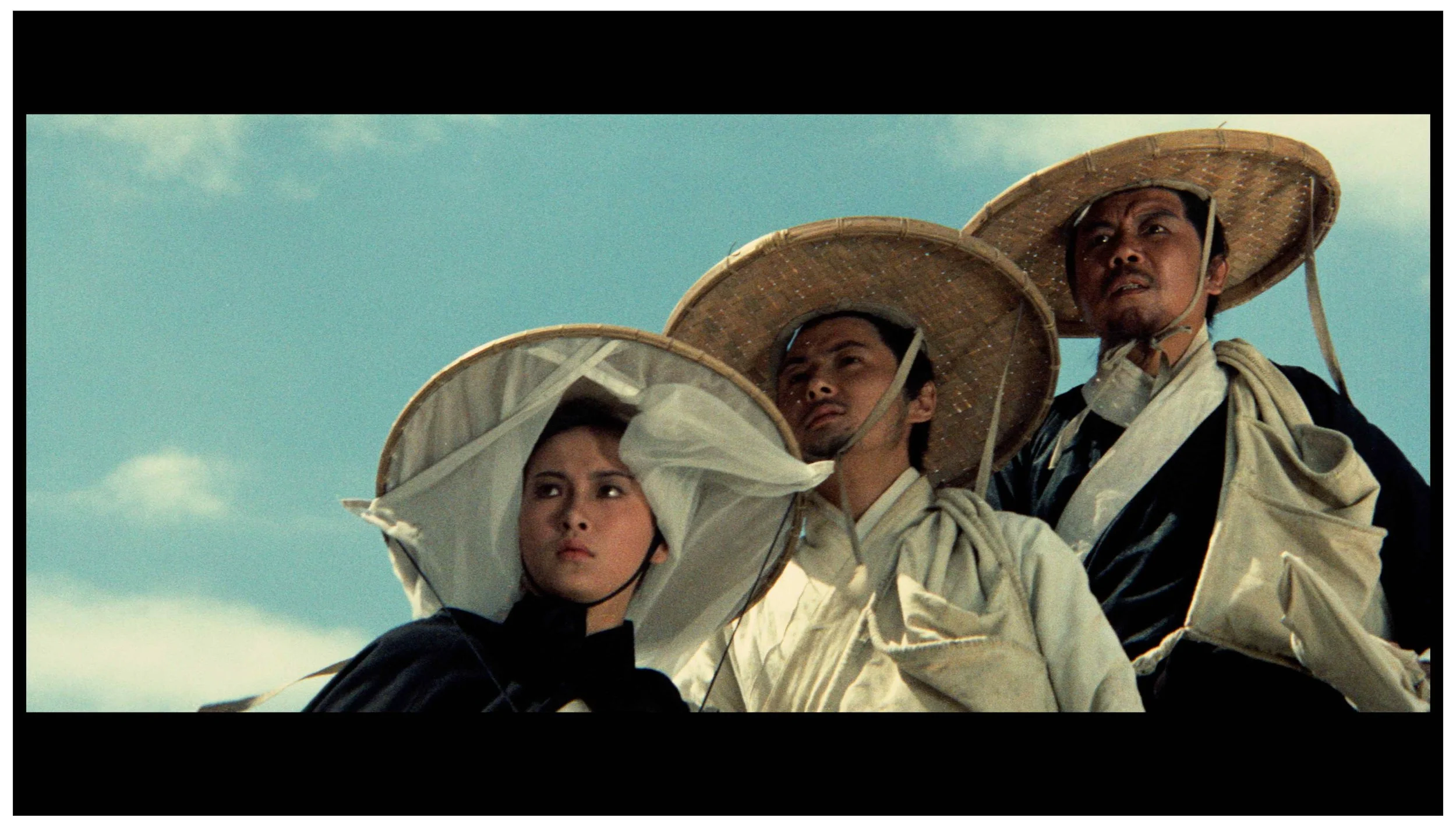Kingmaker
King Hu gets an adoring career breakdown without any real insight into who he really was. Maybe part two?
the King of Wuxia Part 1: the Prophet was once Here
Directors: Lin Jing-jie • Writer: Lin Jing-jie
Featuring: King Hu, Shih Chun, Cheng Pei-pei, Peggy Chiao, Sammo Hung, Tsui Hark, John Woo, Hsu Feng
Taiwan • 2hrs 6mins
Opens Hong Kong June 8 • IIB
Grade: B
Remember what I said about Ennio? How it was a film by film nerds about film nerds for film nerds, or something along those lines? Welcome to its summer companion. The King of Wuxia Part 1: The Prophet was Once Here | 大俠胡金詮 - 第一部曲 —— 先知曾經來過. Much like Ennio Morricone’s influence on film music, director King Hu’s influence on martial arts cinema, on Hong Kong cinema, and on Chinese-language cinema overall cannot be understated. There’s a valid argument here that a great many of our favourite genre filmmakers, especially from Asia, would not be here, or in the form we know them in, were it not for King Hu Jinquan. Tsai Ming-liang wouldn’t have made Goodbye Dragon Inn. Tsui Hark wouldn’t have made Dragon Gate Inn. Ang Lee would not have had such a rich springboard for Crouching Tiger, Hidden Dragon. Chow Yun-fat may not be the legendary Cool Guy™ that he is. All that – and a fair bit more – is a direct result of Hu’s wuxia films of the 1960s and ’70s. It could also be argued that without him, Hong Kong’s status as vanguard of kung fu cinema wouldn’t even be a thing.
Director Lin Jing-jie’s exhaustive and exhausting two-part chronicle of Hu begins with a deep dive into his work as an artist and as an innovator, focusing a great deal of this part on Hu’s defining holy trinity, Come Drink with Me (1966, and featuring eventual A Chinese Ghost Story director Ching Siu-tung and Jackie Chan), 1967’s Dragon Inn (this one had Sammo Hung in a bit part) and A Touch of Zen (1971). Much of this deep dive comes via accounts from Hu’s one-time leading man Chih Shun, who visits the bamboo forests and rocky desert landscapes that give the films their recognisable visual aesthetic. Some of this is a bit harrowing; spry as he appears well into his 80s, Chih is still a guy in his 80s climbing treacherous terrain. Lin allows Chih, stars Cheng Pei-pei, and Hsu Feng among others to expound – often at length and frequently repetitively – on Hu’s process and creativity.
For his examination of late-period, under-the-radar-gems The Valiant Ones (1975), and the simultaneously shot companions Raining in the Mountain and Legend of the Mountain (both 1979, suck it Lord of the Rings), Lin peeks further behind the curtain to chat with filmmakers whose own work was impacted by Hu, among them Ann Hui, John Woo, Tsui Hark and Hu’s DOP Henry Chan. It’s a lot of talking heads (of course critics and academics are included) about Hu’s genius, and yeah. You’ll walk out wanting to dig out your Criterion Classic of Come Drink With Me but the construction and art of this doc won’t stick with you.
But, and this is a huge “but”, like Ennio, The King of Wuxia Part 1 skirts the issues of who Hu was and provides next to zero insight into the man himself. What made him tick? Where did he pull his artistry from (Chinese opera gets plenty of credit here, but that’s not a film source)? His own influences are credited as mid-’60s spaghetti westerns and early Akira Kurosawa. Why these? What inspired him to put so much weight on Cheng and Hsu, women in a man’s form? Hu remains an enigma after two long, often hagiographic hours and really only goes halfway to contextualising his work within a given cinema time or geography. What’s left to say about Hu in the forthcoming part two – The Heartbroken Man on the Horizon – remains to be seen but there’s plenty to mine. In all likelihood Lin has compartmentalised the professional and the personal aspects of Hu, and the full picture will emerge in a couple of weeks. The Prophet was Once Here is a great start towards illuminating one of the cinema’s most influential, yet still unacknowledged (to the masses) filmmakers. Unlike Fast XI, I’m actually looking forward to that one. — DEK



